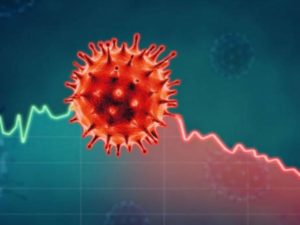Juan Carlos Apitz: Economy recovery depends on different factors
The manager for Alternative Markets at Intelinvest suggests to focus governmental efforts on the causes instead of the consequences of COVID-19 pandemia
Current global pandemia that has stopped the world and forces citizens from all the nations to stay on quarantine, has diverse and deep effects on global economy. The quarantine represents a shock on demand, because of the social confinement, which will seriously affect the production capacity of the countries. Through this conversation, lawyer Juan Carlos Apitz Ardizzone, Alternative Markets manager at Intelinvest, and as representative of this Stock House, analyzes the first economic effects of COVID-19 and the possibility of suffering a global recession.
“The sprout of the pandemia the first quarter of the year coincides with a very peculiar economic scenario. The sustained growth of world economy is explained through the big debt that central banks have promoted all over the world. At the United States, for instance, corporate debt has reached record levels and has promoted a rally in all indexes. Corporate debt of no financial sector of US economy, which commonly contributes to major levels of production on the economy, increased about 68 % of the GDP between 2008 and 2018, the highest percentage in history for this sector,” the expert mention as an introduction.
Economy science establishes that the spending of one person is the income of another one. Thus, a person alone could spend just what produces or what a third person is able to lend with the condition of a future payment. In this case, it is possible to grow more whit respect to what is produced but, at a certain moment, such situation could only be sustained if the production does not increase. Someone will necessarily stop receiving the incomes when the indebted becomes incapable of paying; says the specialist on Alternative Markets from Intelinvest.
Apitz Ardizzone adds that it is the same with the countries. Although low interest rates tend to raise the debt, the central bank hits the bubble when it needs to increase rates, generating a chain reaction of non payment. RayDalio explains very well this process on the “Big Debt Crises”, and also warns the existence of these leverage and non leverage processes for both short term (5 to 8 years) and long term (75 to 100 years).
The expert assures that “global economy already had an extra debt when COVID-19 appeared and it placed financial markets on a high vulnerability level. It is not a coincidence that in just 2 days the S&P 500 decreased almost 32 % and that a few weeks later it lost all revenues the index had obtained since Donald Trump became president of the United States. It was an external shock or a Black Swan, as many prefers to call it. The coronavirus unveiled the high vulnerability that had been growing for years on the international financial system. Given the leverage of margin accounts for financial actives spectrum even gold experienced massive sales during the recent days. Although Taleb, Spitznagel and Cole consider such events somehow predictable on a portfolio, the truth is that most of the world financial institutions were caught by surprise.
Global economy recession
Growth projections of global economy have started to face the possibility of a world economy recession. Social isolation is a strong shock before the demand of goods and services, which will cause a considerable decrease on companies revenues. According to KPMG, COVID-19 represents a shock for the demand, the offer and also for the markets.
The recovery of the economy will depend on the capacity of the governments to lower the corporate leverage while reducing the impact of demand downfall
The manager of Alternative Markets for Intelinvest explains that “the strike of Chinese economy has started to show results on more vulnerable economies first affecting manufacture sector and more recently services sector. The single way to revert the economic impact consists on focusing governmental efforts on the causes but not on the consequences. The efforts of public policies are aimed at massive detection of pandemia cases in order to apply best controls to the virus sprout. The quantity of infected people, being the most important metric, could be reduced as the infection rate (exponential and very accelerated) start to decrease progressively. If the timely evaluation of authorities is unable to identify, isolate and recover all infected people, the shock on demand could extend over time affecting world economies.”
Apitz points out, as to conclude, that although central banks and governments are aggressively stimulating the economy, what really can stabilize the markets is the timely advance on a world response to COVID-19.

“Donald Trump and Nicolás Maduro have proposed a stimulation package of measures that seeks to suspend the aggressive downfall of the economy, but financial markets seem to be immune to these decisions. The only guarantee for a sustained recovery of the economy is to focus on a definitive way to overcome the global pandemia. Th resources that have been used up to now to control the downfall of world production must change their focus to the pandemia, which up to now seems to be the antidote that have applied the countries that have succeeded on overcoming this global crisis.”
Taken and with information from the interview on DOBLE LLAVE


